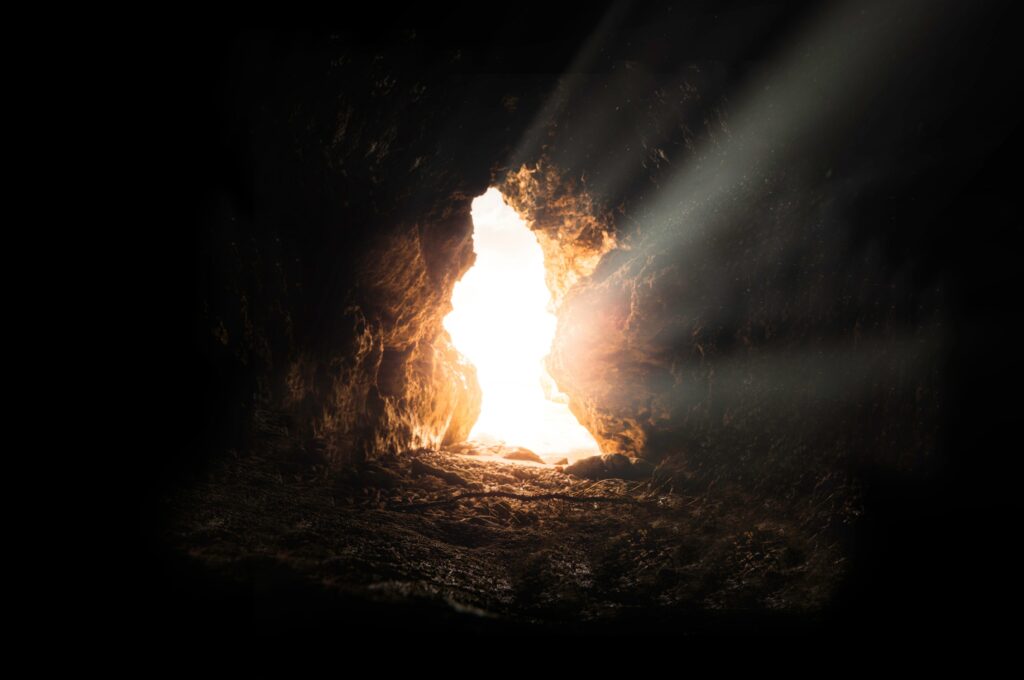I had a conversation with a close friend a couple of weeks ago, and he asked me a question that I have been chewing on ever since: Do those of us who adhere to the doctrines of grace tend to downplay the resurrection of Christ? Do we, in our drive to make everything Gospel-centered and cross-saturated unintentionally underemphasize the final miracle in the doctrines of grace, the vindication of the Son by the Father in the empty tomb?
The more I have thought about it, the more I wonder if perhaps there is not some subtle truth in this notion, though there is no way to empirically substantiate it. As adherents to historic Reformed orthodoxy, we love to proclaim Good Friday and its staggering implications for fallen humanity. Rightly, we cherish the great truth of Christ’s substitutionary, effectual death on behalf of His people. We exalt His propitiating the wrath of the Father—the wrath that we deserved to bear, Christ bore. How could we not exult in so glorious a truth? We speak often of Christ’s active and passive obedience and the application of both for the imputation of His righteousness to sinners: “God made him who knew no sin to be sin on our behalf so that we might be made the righteousness of God in him.” That may be the Olympus of theological truths.
As I thought of these things and my friend’s question, I realized that in my own speaking of the Gospel, I always frame as the “person and work of Christ” or His substitutionary atonement, but invariably, I (unintentionally, of course, I’m not suggesting any of us does this on purpose), leave off the resurrection. In the past few days, I have found myself saying “Christ’s death…and resurrection in our place.” After all, His resurrection secured our resurrection and Paul tells us that we are raised in Him.
The resurrection has been the focal point of attack from atheists and liberals throughout the history of the church. Jesus contended with the Sadducees whose central theological thrust was a denial of the resurrection. In the Enlightenment, British empiricist David Hume virtually made a career out of attacking the validity of Christ’s resurrection in his assault on the Christian faith. Hume, the Sadducees and all skeptics know that if one proves the resurrection of Christ false, then the Christian faith and its supernatural power collapses like a house of cards.
Of course, we who cherish the doctrines of grace certainly also cherish the resurrection of Christ, for without it, the cross is void of significance. With Good Friday looming in a matter of days, Paul’s exposition of the centrality of the resurrection of Christ in 1 Corinthians 15:12-22 serves as a good reminder for us all of the catastrophic consequences for our fallen world if Christ “be not raised.” If the resurrection is not true, then Paul says eight awful truths emerge that renders false the Christian faith. If Christ is not raised, then:
- Not even Christ is raised. This is the first and most obvious consequence. This is nuclear fallout. If there is no resurrection from the dead, as Hume and the Sadducees claim, then Christ’s body was eaten by dogs or taken by thieves or secretly removed by Jesus’s disciples or there exists another naturalistic explanation for the claim by hundreds of witnesses to have seen the risen Lord.
- The preaching of the Gospel is useless. The good news is then no news. Actually, it is bad news. For, apart from the resurrection, Jesus has not conquered suffering, sin or death and these three evils will forever be our conquerors. As Barney Fife always loved to tell people while dispersing a crowd in Mayberry, there is nothing to see here.
- Faith in Christ is worthless. Faith in a lifeless corpse buried somewhere in the Middle East will save no one. If Christ did not rise from the dead, then Hebrews 11 would better be dubbed the “hall of fools” instead of the hall of faith.
- Every witness to the resurrection and all preachers of the resurrection are deluded liars. To deny the resurrection is to call the apostles and every other New Testament leader liars. They are not simply mistaken, but are peddling a whopper of a myth. Jesus, too, is a liar, for it was He who said, “I am the resurrection and the life.”
- Christianity is a fairy tale. Scripture is nothing but a book of history comingled with superstition and myths. Missions and evangelism are a colossal waste of time, energy and money. We do not waste effort and resources peddling Mother Goose and we should not waste our time on this ancient myth.
- All of humanity is still in its sins. What Paul says remains true, “The wages of sin is death.” Our world is still fallen, still captive to sin, still enslaved to death.
- Everyone who died is in hell. There remains no sacrifice for sins, if Christ be not raised. This consequence follows from the sixth one and means that every human being will face the full, unmediated wrath of God for all eternity.
- Christians are the most pathetic people on earth. Paul puts it this way, “If Christ be not raised, then we are of most men to be pitied.” Indeed. And this is why the world, as Paul says so well in 1 Corinthians 1, sees the cross of Christ as foolishness. If every part of the Gospel is not true, then we will have spent our days pursuing a God who will not be able to benefit us beyond the grave. Not only are we objects of pity, the skeptics around us are correct. Blaise Pascal’s famous “wager” will do little to make us feel better in eternity.
Soon, the Christian world will celebrate both Good Friday and Easter Sunday. In all the teaching, talking and theologizing we who march behind the banner emblazoned with the five solas tend to do, let us remember that we cannot have the one without the other.























